PsychNewsDaily Publishers
100 Summit Drive
Burlington, MA, 01803
Telephone: (320) 349-2484
PsychNewsDaily Publishers
100 Summit Drive
Burlington, MA, 01803
Telephone: (320) 349-2484
Affordable mental health care in Texas includes community health centers, state programs, and nonprofits offering counseling, crisis help, and specialized support without cost concerns.
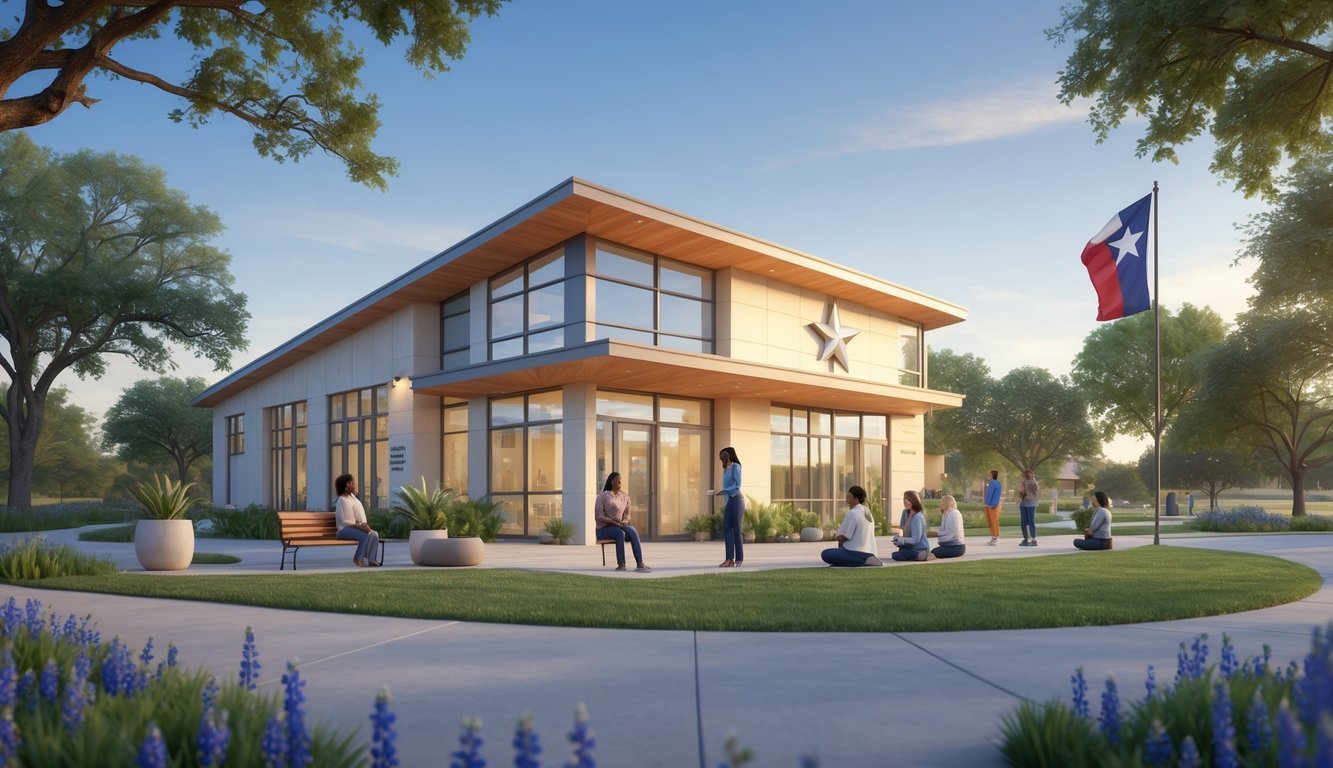
Trying to find affordable mental health care in Texas can feel like a huge task, especially if you’re already dealing with tough emotions or stress. Luckily, Texas has a bunch of free mental health services through community health centers, state programs, and nonprofits. They want to make sure you can get help without worrying about money.
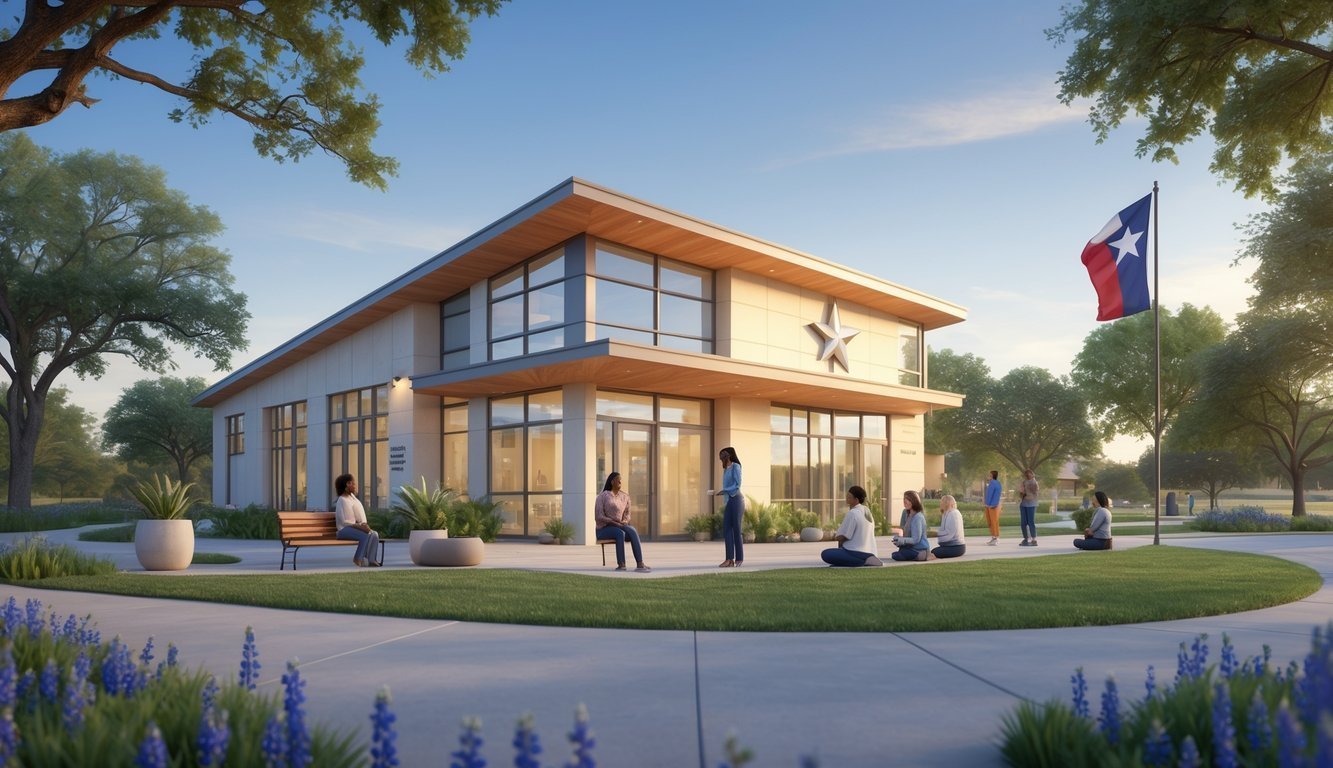
You can get free mental health services in Texas through federally qualified health centers, state hospitals, community mental health centers, or university counseling programs, even if you can’t pay. These places offer individual counseling, group therapy, crisis help, and special programs for different mental health issues.
Knowing what’s out there and how to actually get help can make all the difference. From federally qualified health centers across Texas to local support systems, you probably have more options than you think for getting quality mental health care for free.
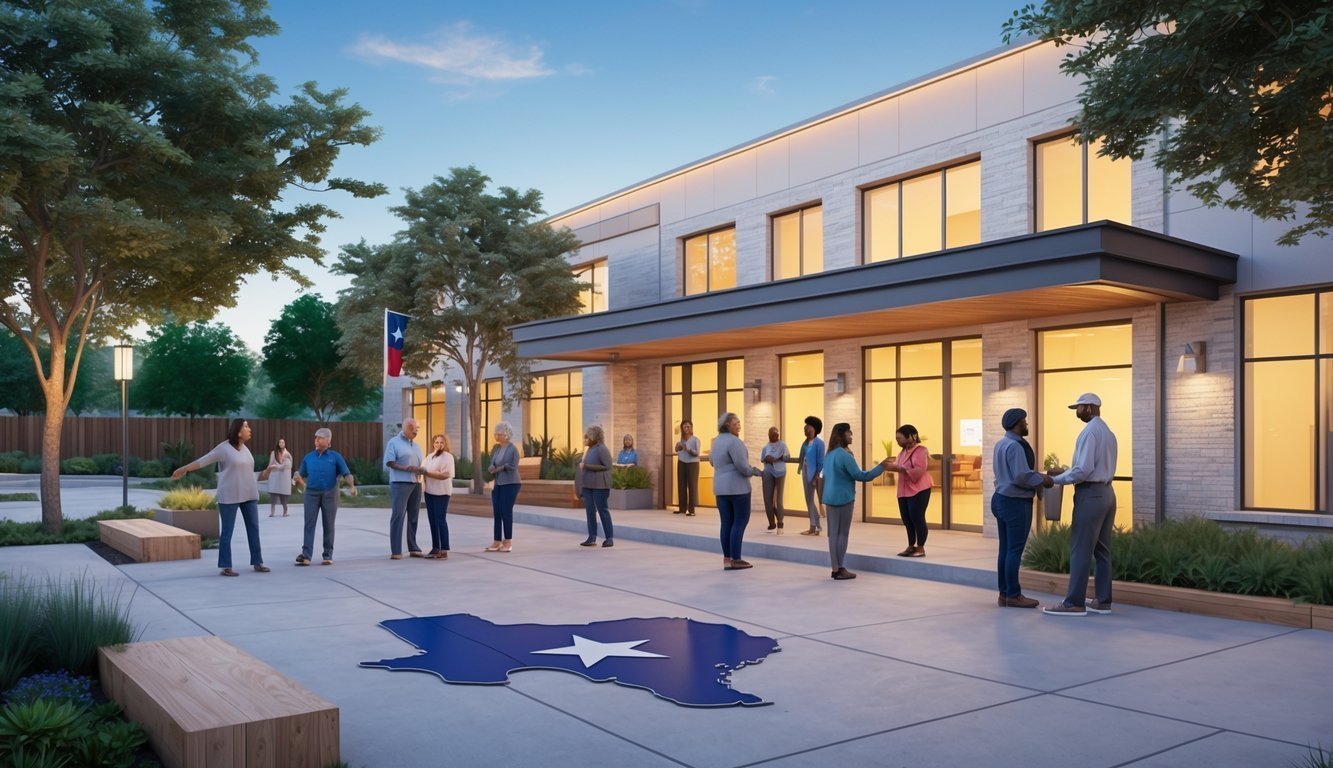
Texas has several ways for you to get free mental health care. State programs, local centers, and even online services are all available.
You can get help with everything from a crisis to ongoing therapy, and you don’t have to worry about the cost.
Texas Health and Human Services runs the main mental health system in the state. You can call 800-252-8154 to ask about behavioral health programs and find out what you’re eligible for.
The state pays for community mental health centers in every region. These centers offer outpatient counseling, crisis help, and psychiatric care. You don’t need insurance to get in.
Eligibility Requirements:
Your local mental health authority sets up care in your area. They offer both emergency and regular care, depending on what you need.
Harris County has several public mental health centers that help over 30,000 people every year. The Harris Center provides outpatient care and runs the NeuroPsychiatric Center, which is open 24/7 for crises.
What They Offer:
Community health centers often use a sliding fee scale, so what you pay depends on your income. Many can see you the same day if you need urgent help.
Federally Qualified Health Centers across Texas provide mental health services, too. There are 71 FQHCs with more than 700 sites statewide, so you can find care pretty much anywhere.
Texas has made it easier to get mental health care online. You can do therapy or talk to a psychiatrist from home using video or phone calls.
Lots of community mental health centers now offer virtual appointments. This helps if you can’t get a ride or just need something more convenient.
Digital Options:
State universities also have virtual counseling resources. University of Texas offers online mental health services through their counseling centers, and you don’t have to be a student to get support in some cases.
When you need urgent help, you can use text or chat services for crisis support. This can be a lifesaver when you’re in a tough spot.
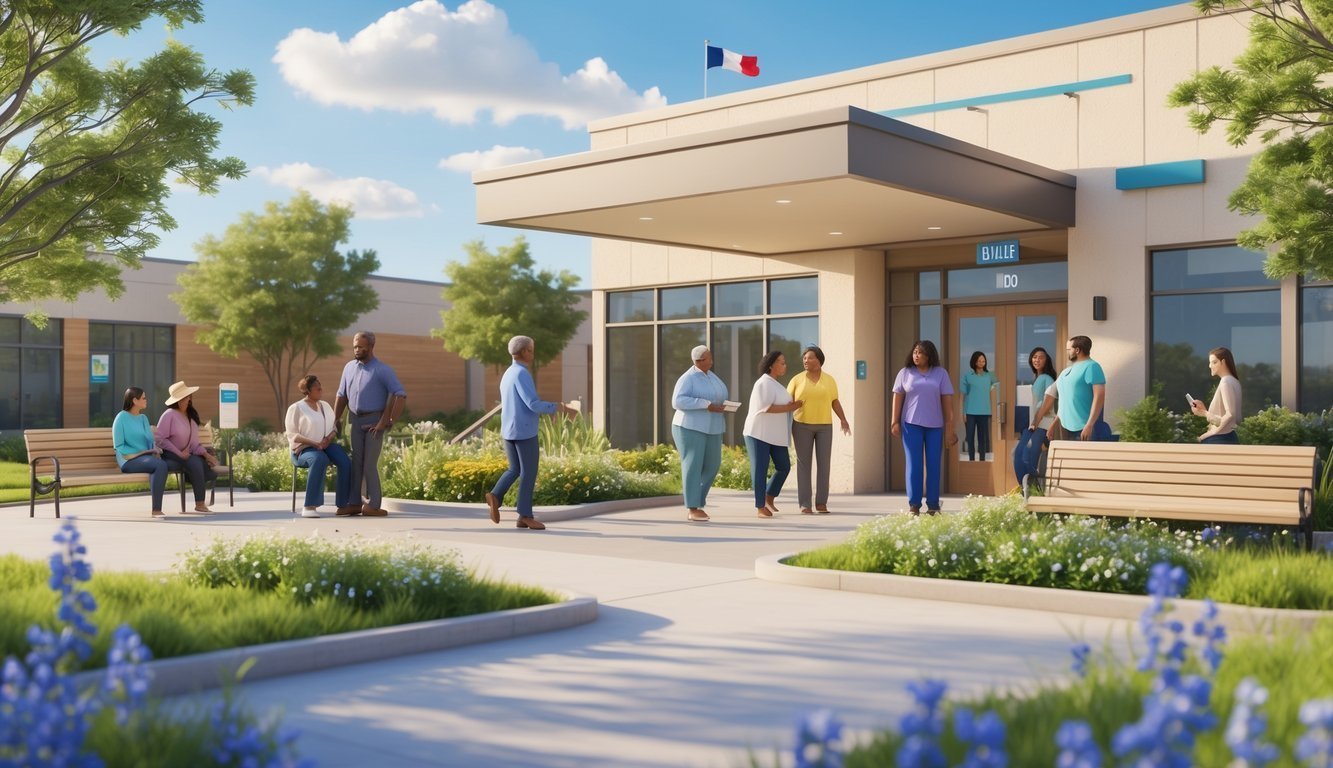
Getting free mental health care in Texas means knowing where to look, meeting the requirements, and finding the right provider for your needs.
Most free mental health programs in Texas are for folks with low incomes or no insurance. You’ll usually need to show proof of income, where you live, and some ID.
Income Requirements:
To sign up, contact your local community mental health center. You can also check yourtexasbenefits.com to see if you qualify for Medicaid.
What You’ll Need:
It usually takes a week or two to process your application. Sometimes, you can get temporary help while you wait.
Federally Qualified Health Centers offer mental health care for uninsured and low-income Texans. They use sliding fee scales, so you only pay what you can afford.
Your local mental health authority runs the community centers in your area. Each county or region has its own providers for free or low-cost services.
How to Find Providers:
Many places offer services in Spanish and sometimes other languages. Some areas can help with transportation, too.
Crisis mental health help is available 24/7 in Texas. You can get these services right away, no need for paperwork first.
In Harris County, the NeuroPsychiatric Center is open all day, every day for crisis evaluations and treatment. Other big cities have similar places.
Crisis Help Options:
Crisis help includes phone counseling, mobile teams that come to you, and short-term residential care. These services are free, no matter your insurance or ability to pay.
If you have trouble getting services or want to complain about your care, the Ombudsman for Behavioral Health can help you sort things out.
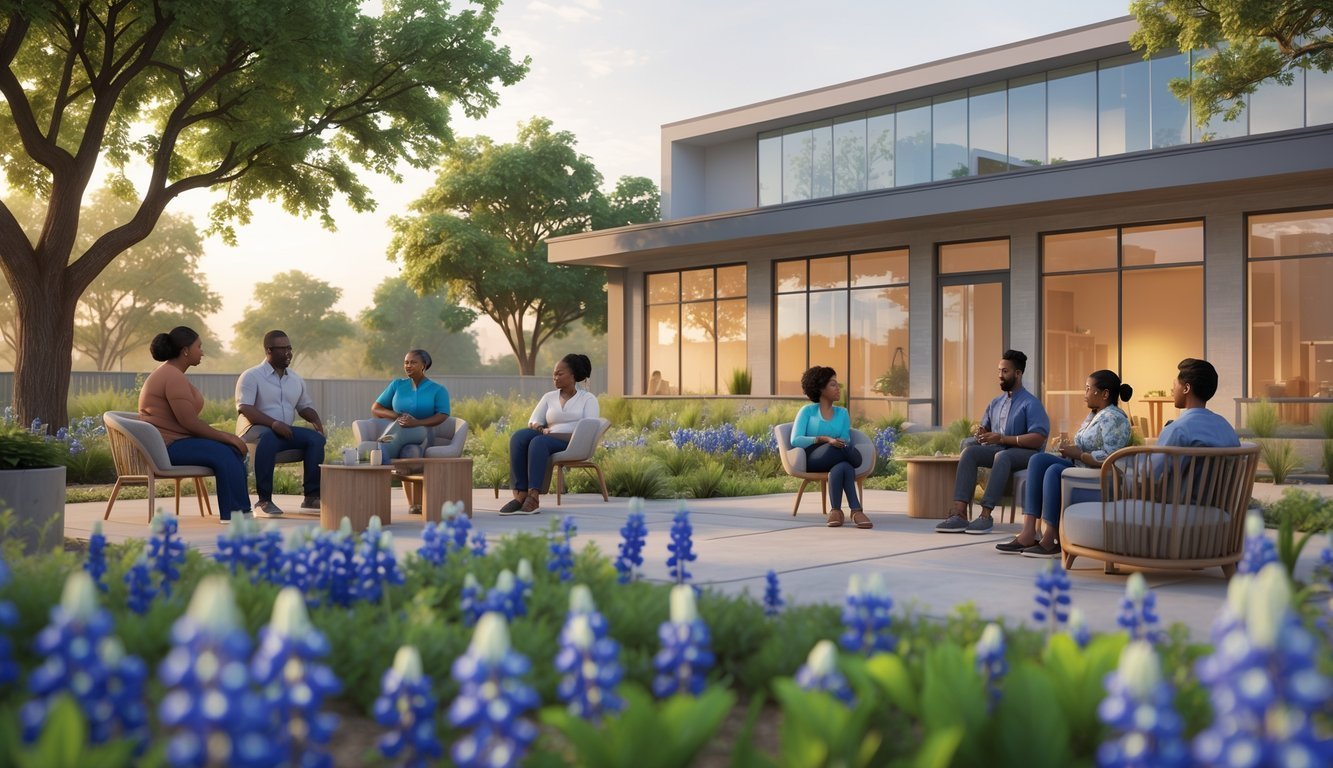
Texas has special mental health programs for certain groups, like kids and teens in schools, veterans, and people who want peer support.
A lot of Texas schools offer free mental health care right on campus. School counselors can help with crises or ongoing issues like anxiety, depression, or behavior problems.
Universities also have mental health centers. University of Texas at Austin gives clinical and psychiatric care, and they adjust the number of sessions based on what you need. Texas A&M University has same-day crisis help during regular business hours.
Texas State University works with TimelyCare to give students free, on-demand mental health support through an app. That means 24/7 access, which is pretty handy.
Community health centers often run programs just for kids and teens. These focus on catching problems early and involving families in treatment.
Veterans who qualify for VA healthcare can get full mental health services. The Houston Veterans Affairs Medical Center offers help with PTSD, depression, and substance abuse, which are common for people who served in the military.
Community groups across Texas run programs just for veterans. They offer group therapy, family counseling, and support for coming back to civilian life.
Some programs focus on issues unique to military life, like trauma from combat or relationship struggles after service.
Local VFW and American Legion posts help veterans find mental health resources. They also offer peer support and help with VA paperwork.
Texas has a Mental Health Peer Support Re-entry Pilot Program that connects people leaving institutional care with trained peer specialists. These folks help you adjust to life back in the community.
Peer support groups meet all over Texas. People share their experiences and coping tips in a group led by someone who’s been through similar things.
The Ombudsman for Behavioral Health helps with complaints about mental health care at state hospitals and community centers. They stand up for your rights and help fix service problems.
NAMI Texas chapters run free support groups and classes. Volunteers lead family-to-family and peer-to-peer programs all over the state.
Texas still has some big problems making sure everyone gets mental health care, especially in rural areas and for people without insurance. At the same time, new programs and funding are trying to make things better.
Rural Texas has a real shortage of mental health providers. Some counties don’t have a single psychiatrist or licensed counselor.
Getting to appointments gets tough if you live far from the nearest clinic. Many folks can’t take time off work or afford the trip to a big city.
Insurance issues can make things worse:
If you don’t have insurance, the cost can be huge. Therapy sessions might run $150-300, and psychiatric visits can be $400-800.
Language is another barrier, especially for Spanish speakers in rural areas. Not many providers offer services in Spanish or have interpreters.
Wait times can drag on, too. In some places, you might wait up to two months just to see a psychiatrist.
Texas has started several programs to make mental health care easier to get statewide.
The Bipartisan Safer Communities Act brought in $245 million in federal funding for mental health services, and some of that money goes toward training school staff and first responders.
The Hogg Foundation gives policy grants to boost interest in mental health programs across Texas.
These grants let communities come up with their own solutions.
Key state improvements include:
Texas Health and Human Services runs an ombudsman program for behavioral health, so you can get help figuring out the system or sorting out access issues.
Universities now offer more virtual services.
Students can get counseling, health coaching, and psychiatry online, even during evenings and weekends.
Harris County stands out here.
The Harris Center gives outpatient services to over 30,000 people every year and keeps 24-hour crisis centers running.